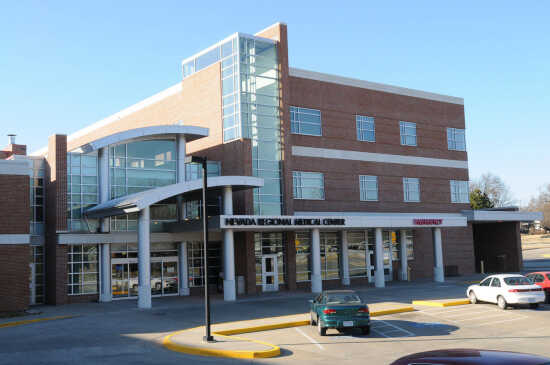Tough economy hits home: NRMC 'right sizing' its organization

Editor's note: Changes are coming for some of the staff at Nevada Regional Medical Center. Following is a statement from NRMC about the hospital's reasons for making changes and how hospital administrators believe employees and services will be affected by economic pressures the hospital is experiencing.
Nevada Regional Medical Center, like many other healthcare organizations, is feeling the rift of a simultaneous economic downturn and industry change from healthcare reform. The economic impact of a recession effects patient decisions in healthcare. Many choose to wait for services that are elective. And, the uncertainty caused by healthcare reform only solidifies those household decisions. Nevada is not immune to these national crises and many local industries are making changes to positively impact their bottom line. As a not-for-profit organization, the hospital does not receive any sales tax or other subsidies. The income is dependent upon patient volumes.
"Nevada Regional aspires to reach a bottom-line that allows us to adequately reinvest in our people, medical equipment and facility. Therefore, we strive for a neutral or better bottom-line. Over the last several months, volumes have been considerably below budget and have yielded a negative bottom line," said Judy Feuquay, president and chief executive officer at NRMC.
"November was a better month than October but, it still was not good. And the preliminary numbers for December are not looking much better," said Cindy Buck, chief financial officer at NRMC. "Volumes and admissions are down in most service areas and we do not expect that to change in the near future." The most recent financial statement from the hospital reported a nearly $600,000 negative bottom line, year-to-date. Feuquay said, "In response to the continued negative financials, we have to make some changes. We are right sizing our organization to match our workforce to our volumes. We have waited for our volumes to catch up with us and have tried to prevent any impact to our staff, but we are at the point that we need to act and the numbers show that we are bigger than we need to be." The right sizing process will affect 22 employees at the hospital. Only three positions have been eliminated all together. There were 15 employees whose hours were reduced and four who are being offered open positions in the long-term care facilities operated by NRMC: the Moore-Few Care Center and the Barone Alzheimer's Care Center.
"We have worked very hard to have this process impact as few employees as possible. We have been able to shift some staff into open positions so they are not laid off entirely. And, through attrition, we have been able to not back-fill resigned positions and have instead redistributed that workload across the organization. This is a very difficult process but I feel good about the number of jobs we've been able to retain. We are weathering this storm much better than many other hospitals like us," said Feuquay.
Prior to the organizational changes, NRMC has managed the bottom line through budget cuts. "We began in March of 2010 by cutting a large percentage of our controllable expenses. We reviewed all of our contracts for savings and had the department heads reduce their budgets midway through the year. We also cut the employee paid time off to half. This didn't yield enough savings and our volume trends continued to drop. This week, we mandated another 8-percent cut in controllable expense from every department in order to maintain jobs and meet the neutral bottom line goal," said Buck. "The news is not all grim, however," said Feuquay. "We are working to make our budgets right now but, we are also working on programs that will carry NRMC into the future. We must remain competitive and continue to expand services that our community wants and needs." Recently, NRMC added two closed beds to their inpatient Behavioral Health Unit bringing the department to a 22-bed facility.
Additionally, they have opened an outpatient psychiatric clinic and were able to do so after hiring 2 new psychiatrists in 2010. They are also reviewing the possibilities of adding a geriatric psychiatry unit in their long-term care division.
"We are not going to roll over," said Feuquay. "We are reviewing all of our services and adding what is needed. There is a clear need for psychiatric care in our community and the fact that our brand new clinics are full for the next few months shows that these are good decisions. We are strong and will make it through these tough times, to be better than we were before!"
